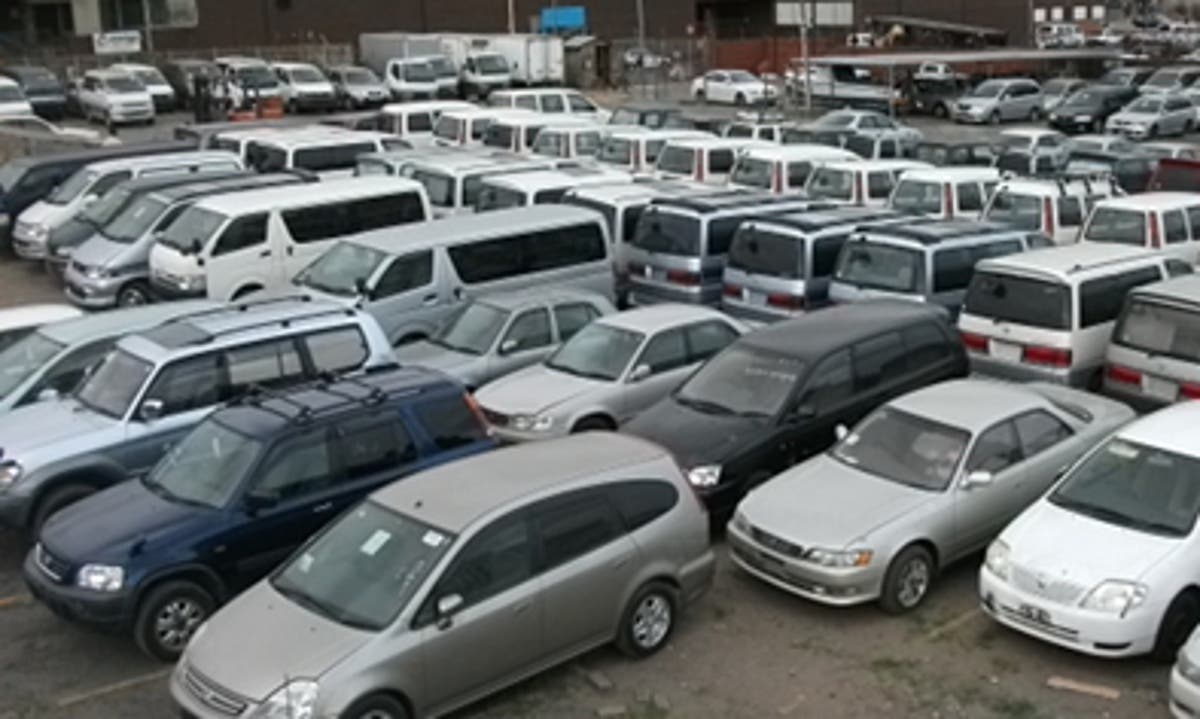By Lloyd Mbiba
IMPORTED secondhand cars are emitting exhaust gases and radiation that are polluting the air and worsening the effects of climate change.
An inquiry by this publication revealed that imported Japanese and United Kingdom (UK) cars are not tested for exhaust gas and radiation emissions upon entry.
Owners only pay duty and acquire documents demanded by government for one to drive in the country.
Their gas and radiation emissions are not monitored and the average mileage of an imported reject vehicle is about 100 000 kilometres.
The vehicles, commonly referred to as ex-Japanese or ex-U.K include sedans, commuter omnibuses and haulage trucks.
In the past years, Zimbabwe has experienced severe droughts which have been linked to climate change and left millions seeking food aid.
With the economic crisis punctuated by high unemployment and ever rising inflation, most Zimbabweans can no longer afford new cars.
In turn, they resort to importing used cars mainly from Japan and United Kingdom.
Zimbabwe National Road Administration (Zinara) revealed to this publication that as of October 25, 2020, their database had 1 041 852 vehicles.
Of those only 610 320 had paid their license fees to Zinara.
39 072 cars had valid exemptions meaning they asked not to renew their licenses because they are parked.
Climate change analysts canvassed for accused Japan of making Zimbabwe a dumping site for air polluting cars.
Anna Brazier, a climate change expert said reject vehicles will make it difficult for Zimbabwe to reduce toxic gas emissions under the Paris Agreement.
The Paris Agreement is a convention that seeks to force countries to reduce gas and radiation emissions to control climate change.
Said Brazier: “So basically what is happening is that the Japanese are exploiting a loophole by getting rid of polluting cars that are banned in Japan and making money out of it.
“In the long term this will make it harder for Zimbabwe to achieve its goals of reducing emissions under the Paris agreement.”
Brazier also added that reject cars are not only polluting Zimbabwe but the whole globe.
“First you need to understand that emissions from these cars contribute to global greenhouse gas emissions so they are not just polluting Zimbabwe but the whole atmosphere of the planet,” she said.
The greenhouse effect is a situation where toxic gases, such as carbon dioxide and carbon monoxide create a form of cloud around the ozone layer which allows short wave sun rays to pass through and reach the earth’s surface but does not allow them to return to the atmosphere.
In turn, this leads to global warming, droughts and floods.
Another analyst, Washington Zhakata, said the country has so far failed to measure the damage caused by reject cars.
“The extent of damage has not been quantified. The transport sector is yet to have their greenhouse gas inventories conducted,” said Zhakata.
However, Environmental Management Agency (EMA) insisted that the organisation monitors exhaust emissions from vehicles as enshrined in section 68 of the Environmental Management Act (20:27) read with statutory instrument 72 of 2009.
“Meaning owners of vehicles found emitting beyond regulatory specifications are liable to prosecution. This is meant to control air emissions likely to cause global warming and ultimately climate change,” said EMA public relations officer Amkela Sidange.
She added that owners of cars polluting the air are liable to arrest.
“Owners of vehicles found emitting beyond specifications are fined up to level 14 or imprisonment not exceeding 1 year, or both fine and imprisonment,” Sidange said.
Vusumuzi Ncube, an economic analyst based in Bulawayo opined that the dire economic situation was forcing Zimbabweans to import reject vehicles.
“The general sub prime remuneration threshold of the general populace renders the procurement of fresh off the line vehicles a distant and untenable prospect,” said Ncube.
“Enter the Japanese car! These vehicles in all material regards are construed as new in our resource constrained country,” added Ncube.
Zwelibanzi Nkomo, a social commentator, said Zimbabweans are purchasing ex Japanese cars because vehicles are a symbol of success in Zimbabwe.
“Owning a car has become a benchmark of a good life in our society. And these Japanese rejects usually come cheap and also their maintenance is affordable to most Zimbabweans to a point where they have been seductive to every Jack and Jill,” said Nkomo.
Rodney Chidangwara, owner of an imported used BMW 320I said he purchased the vehicle because he adores the Germany automobile manufacturer.
“It is a Bavarian! I could afford this and that is why I bought it. It’s a nice car and who cares about second hand cars in Zimbabwe,” said Chidangwara.
Honest Tshuma said he imported a car from japan for easy travelling.
“I go to work and so does my wife. We have kids who learn at different schools. So I wanted a car and I could only afford a Toyota Allex so I purchased it. It is a fuel saver,” said Tshuma.
But, Brazier said the only solution to the problem is for the government to invest in environmentally friendly public transport.
“The best solution would be for the government to invest massively in environmentally friendly public transport and make private car owners pay to enter the central business district and discourage private car traffic,” said Brazier.

